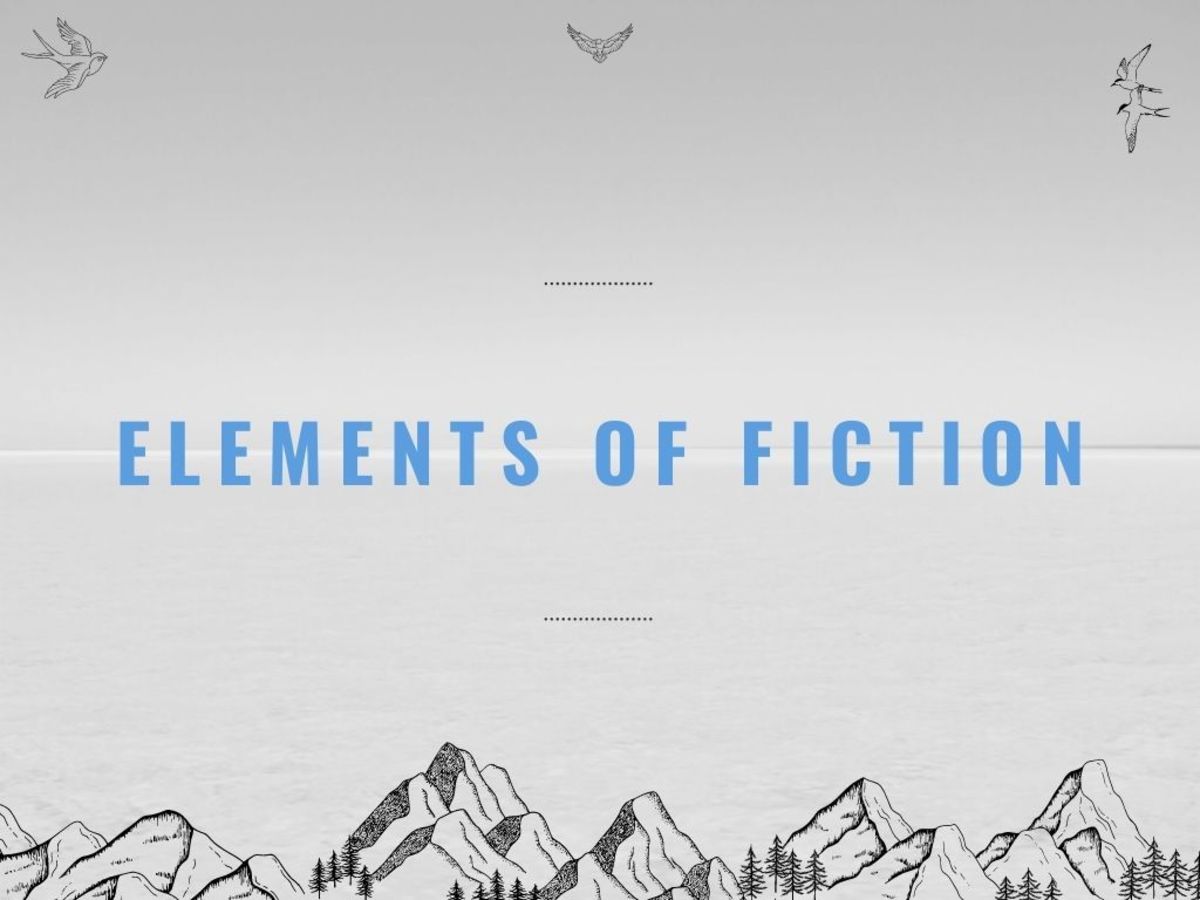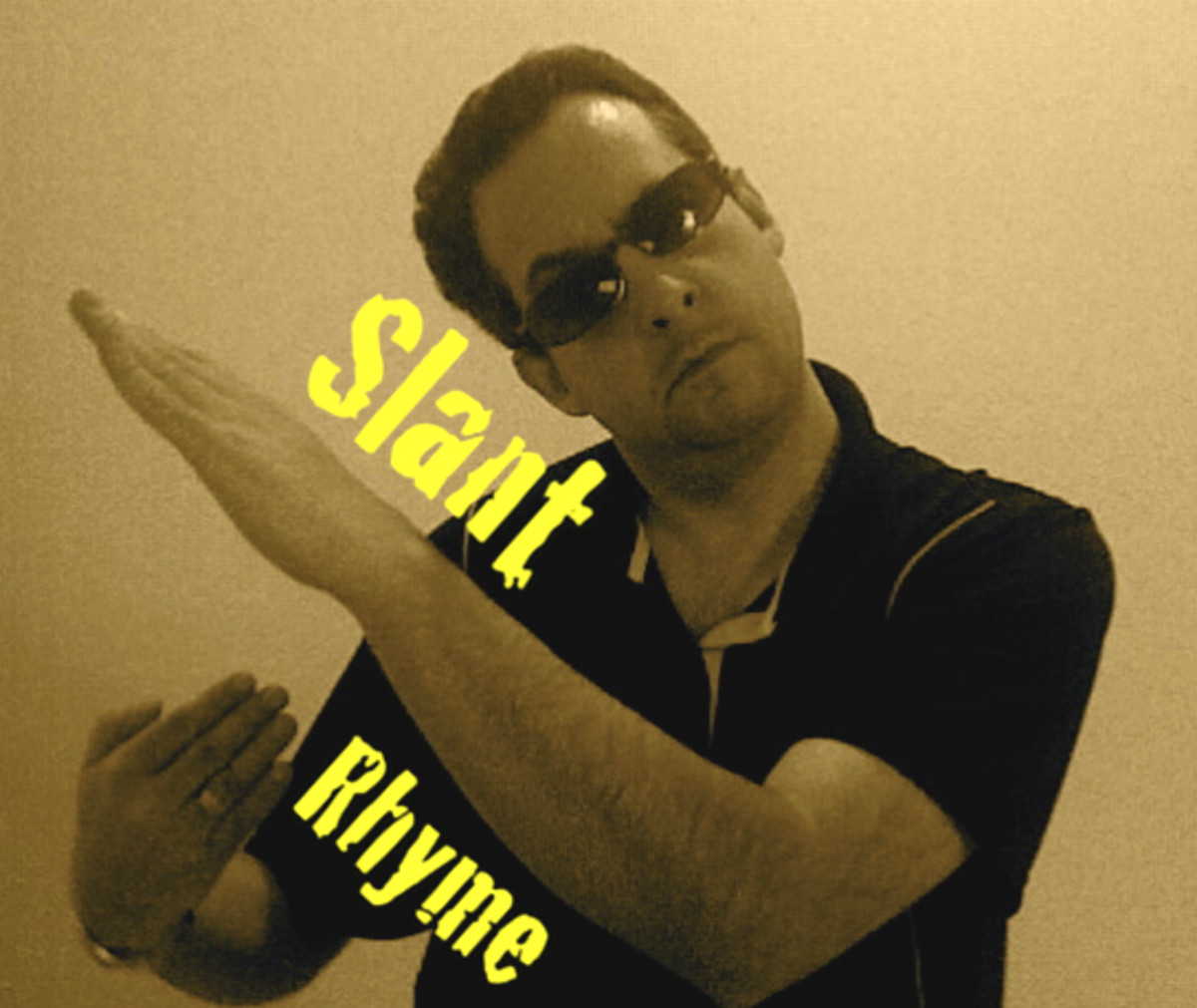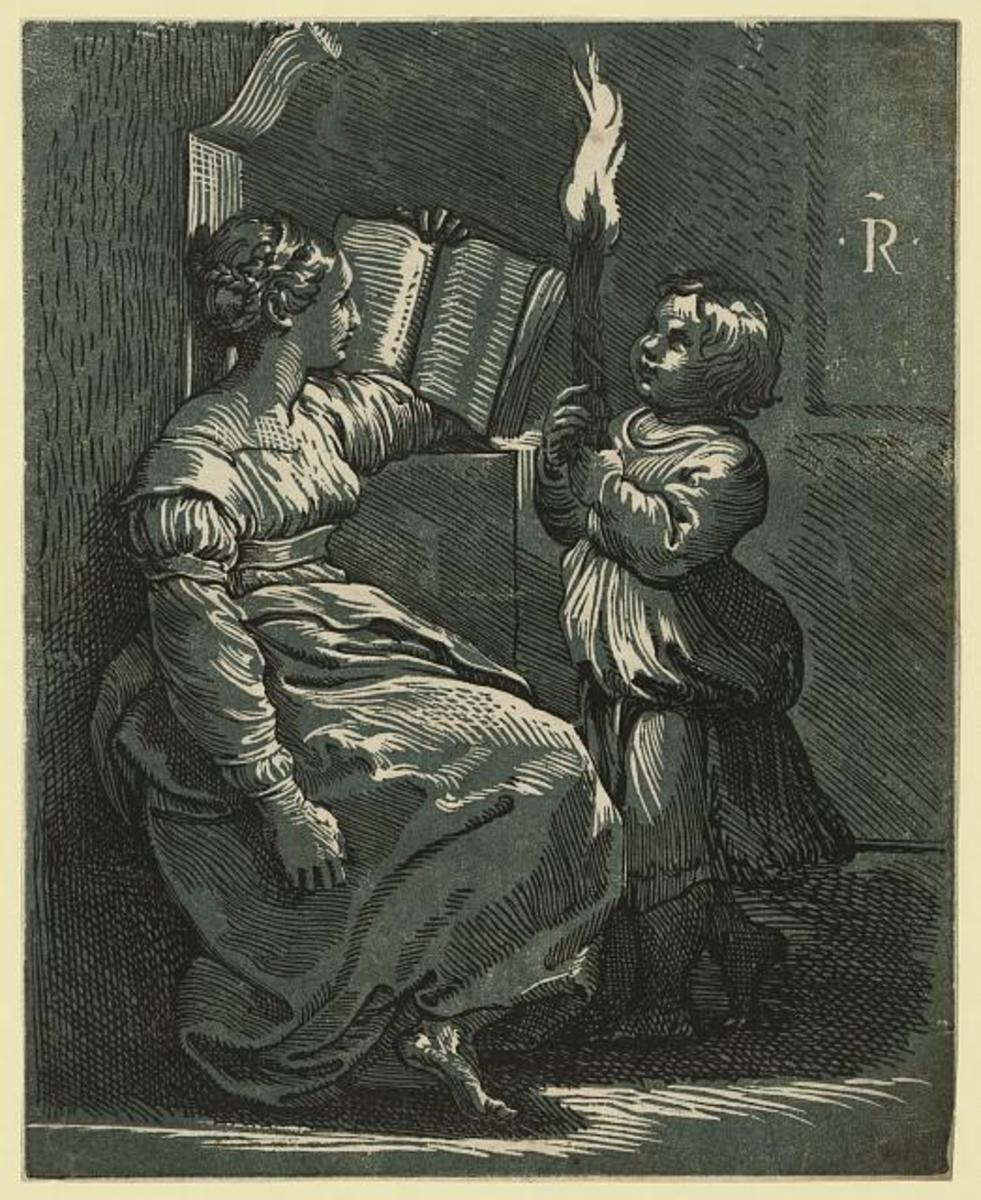Getting Rid of Mary-Sue in Your Original Writing
Or, If You Can't Beat 'Em ...
Week 15: Getting Rid of Mary-Sue in Your Original Writing
The original fiction Mary-Sue is a tough nut to crack. It follows basically every rule set up to discourage MSs, and yet at the same time very frequently flaunts the fact that they’re MSs in our faces.
But we still get screwed over because our fanfic characters are allegedly Mary-Sues? As Colonel Sherman T. Potter would say, “Bull hockey!”
But that doesn’t mean you should turn your original character into a typical Mary-Sue. While an MS in your fanfic can get you flamed, writing crappy characters in your original fiction can actually destroy your career as an author. If you get famous for being the author whose characters are always typical Mary-Sues or Gary-Stus, that’s the kiss of death. You don’t want people remembering your books because of how awful the characters were! You want them to tell their friends about how all of the characters were interesting and well written, what their favorite ones were, how they’ll dress up like them for Halloween … not how they hated the characters so much that the actually wished the characters would die. (I read The Mists of Avalon this summer … I know what I’m talking about.)
PART 1: THE MARY-SUE DOUBLE STANDARD
Here’s the crazy thing about Mary-Sues: if you create a Mary-Sue in a fanfic, you’re likely to get flambéed. If you create a Mary-Sue in an original story, most people wouldn’t even look twice.
Doesn’t make sense, does it? If your fanfic character is as strong as She-Hulk, people will whine, but nobody complains about She-Hulk being that strong. Why? Why is there a double-standard for fanfic Mary-Sues and original fiction Mary-Sues?
It took me some time, but I think I’ve uncovered some of the reasons why original fic MSs get away with murder while fanfic MSs are the ones who get hanged:
Reason 1—Established Characters: I mentioned this back in Week 2 or 3, talking about Superman and his slew of powers. Part of the reason why nobody really complains about Supes is that the dude’s been around since the 1930s, and has been firmly established as a character. People are used to him, so they accept Superman as he is. They don’t even notice any Gary-Stu traits anymore—in fact, they now justify those powers. (Cooling breath, laser vision, flight and super strength? Well, of course! Superman is a Kryptonian and everybody knows that Krypton had a red sun, but Earth has a yellow sun, which activated Superman’s powers. Duh.)
Reason 2—Established Universes: All original fiction characters come with their own universe (planet, town, state, island, country, dimension, galaxy, whatever)—a fanfic character has only been added to a universe. The characters obey the rules of that universe, and that helps the audience understand what the character can and can’t do (i.e. Dracula has great speed and strength, but he needs blood to survive and sunlight sends him scurrying back to his coffin.) When a fanfic character shows up, the audience knows nothing about them, and if the OC doesn’t follow the universe’s established rules, the audience will resent it.
Reason 3—Established History: There are two kinds of established histories I’m talking about here. One is the established history of the character itself, the other is the established history of the book/etc. The established history of the character talks about when they were born, what their family was like, where they lived, how they grew up, how the developed enemies, etc. The established history of the book/show/movie/comic/game is how long has it been around, how man issues/sequels have there been, how popular is it. If the medium has been around for a while, then it must be pretty popular and has a loyal fanbase. If the character’s history is firmly established, then it’s well known by all. When a fanfic character shows up, it has no established history that the audience can draw upon and no established book/whatever history to prove its popularity. The fanfic character suddenly sounds like that little kid who’s always trying to get in on what the adults are doing, and that ticks readers off.
Reason 4—Genre Formulas: You all know what genre is, right? A genre is a specific theme that a story/show/whatnot is classified as (Harry Potter would be under the genre Fantasy, Jurassic Park would be Scifi, The Bourne Identity would be Thriller, etc.). Each genre has its own brand of characters that goes with it. In a hardboiled detective story, you’d get self-deprecating, stubborn, no-bullshit loner characters like Sam Spade and Harry Dresden. In a high fantasy story you’ll have chivalrous, noble, swashbuckling characters like Aragon from The Lord of the Rings and Prince Philip from Disney’s Sleeping Beauty. When writing a story with a traditional genre formula, you’re likely to get characters that will fit a stereotypical role. Though we seem to be slowly moving away from stereotypical genre characters, they’re still popping up like prairie dogs here and there. (Game of Thrones has a mix of both.)
Reason 5—More Time to Explore Character: Generally speaking, a typical fanfic usually isn’t longer than fifty pages, which doesn’t allow a lot of time for character growth. Most novels, however, can be up to a thousand pages or more, while television shows are half an hour to an hour long with an average of twenty-four episodes a season, movies are up to three hours long, comic books are issued every month and video games allow you to participate in the character’s evolution over several hours of game play. They all have the luxury of time in order to fully develop a character, to let the audience see their growth, failures, fears and victories. A fanfic character basically just shows up and never really gets a chance to develop, which can make the character look one dimensional and, if not properly depicted in the story, like a Mary-Sue (no, I know it’s not fair! That that’s the way it is!).
Reason 6—People Choose to Ignore the Mary-Sueness: Sometimes a character is just so damn cool that people just choose not to notice the Mary-Sueness. Don’t believe me? I got four words for you: Batman and Anita Blake. ‘Nuff said.
Reason 7—Redeeming Quality: Sometimes there’s a character that’s almost overwhelmingly Sueish, but there’s something about them that makes you forgive their often extreme perfection. Take Kvothe from The Kingkiller Chronicles. I hate to say it, but by the end of the second book, he was a raging Gary-Stu, but I still kind of like him. Why? Because throughout the books, Kvothe showed both extreme kindness to others and frequently showed true humility, freely admitting when he had messed up or was badly frightened or had done something terrible. He’s brave, but admits that a lot of it is an act. He studies extremely hard and works like a dog, and does his best not to complain about it. He’s a Gary-Stu, but his positive qualities outshine much of his negative ones.
Reason 8—Familiarity/Relatablity: Often there’s a character that we can relate to so much that we often don’t notice that they have any Sue or Stu qualities. Harry Potter is a Gary-Stu, but no one cares because we are able to relate so well with him. We all know what is was like growing up, going to school, dealing with bullies, dealing with Nazi-esque teachers, fighting with our families, losing loved ones, having friends fight with each other, having crushes, fighting evil wizard lords … okay, maybe not that last part … so when we read about Harry having to deal with the same issues, struggling the same way we all have, we sympathize with and relate to him. He’s so like us that we don’t pay any attention to any Gary-Stu qualities.
Reason 9—Good Writing: This is probably the most important factor of all: no matter what else, if your writing is bad, it’s going to ruin everything. You might have the greatest fantasy story idea the world has ever seen, but if you don’t write well, your characters are going to look like Sues.
PART 2: WHAT TO DO, WHAT TO KEEP, AND WHAT TO AVOID LIKE THE PLAGUE
So, okay. There’s a double standard against Mary-Sues in fan fiction compared to Mary-Sues in original fiction. Right, got that. Mary-Sues in original fiction are largely accepted by the audience despite having the same traits as a fanfic Mary-Sue. Okay, got it. But if a Mary-Sue in original fiction isn’t presented correctly, then the author is going to get metaphorically strung up by a posse` of outraged readers and reviewers.
So, what the hell do you do then?
Don’t worry—I’ve been writing for nearly seventeen years now and reading books and comics, watching TV and movies and playing video games for a lot longer than that, so I think I have it figured out.
First of all, all of the rules that I’ve outlined for a fanfic Mary-Sue still stick here (but there are some exceptions—that’s in Part 3), but there are a few new ones and some of them have to be expanded upon, and all of the reasons for successful mainstream characters I listed previously apply here too.
Original Fiction Character Rules:
1. As I said earlier, original fiction is a lot longer than fanfic, so use those extra pages to your and your character’s advantage. While every page shouldn’t be devoted to your character, you should show them growing, improving (or declining) and changing the entire time.
2. The character’s personality should be well developed. In a fanfic you don’t have a whole lot of time to fully examine who your OC is and why they are the way they are, but your original fiction OC should have a personality that is complex and often comes into play throughout the story (like if your character is a smart aleck and always has a quip ready—that shows he has a quick wit.) If your OC doesn’t show much of their personality … or doesn’t even have one … they’re going to get real boring, real fast.
3. In fanfic the OC might have only one weakness, but in original fiction (again, because there’s more time) they likely have several different weaknesses. It could be a phobia. It could be a magic spell. It could be an allergy. It’s not just “kryptonite,” it’s not just one thing, it’s anything that can make your OC falter and look human.
4. Avoid insertion; inspiration is okay, but nobody wants to read a book that sounds like a giant love letter the author wrote to themselves. People want original characters. They don’t want to read about somebody else’s creepy fantasy about themselves.
5. Avoid litmus tests AT ALL COSTS. You think it’s rough taking a fanfic MS test? It’s a hell of a lot more painful when you apply it to your original fiction, something that you’ve been working on and are hoping to get published. They will discourage you because of their unfairness and snide comments. Just don’t do it. You want a review? Find someone fair to read your work.
6. Remember to continuously give attention to the other supporting characters too. Your main OC might be the star of the show, but when they’re getting all the attention, all of the other characters become dull and uninteresting. They should have the same vibrancy as the main OC, and they should have some scene time for themselves as well. They’re important! Don’t ignore them, and don’t make the OC outshine them all.
7. When writing dialogue, write the way people speak (it’s actually not that hard.) I’ve read plenty of books where the dialogue is stilted and the responses don’t match the character’s personality or their situation (for example, if a sailor said something like, “Goodness gracious me!” during the attack on Pearl Harbor. Not likely!) Bad dialogue really wrecks your entire story, so take care to write it properly. Trust me, this is big. (Also related to Part 3)
8. Avoid stereotyping. Not every gay man is effeminate, not every black man talks in ghetto lingo, not every blonde woman is a bimbo, not every woman who is good in sports is a lesbian, not every Asian person is brilliant at math, not every kid who dresses in black is Goth. Get it? All that stuff is so pervasive in our culture that we don’t readily see it sometimes, and then the next thing you know, it shows up in your story. Don’t do that. It’s offensive and, honestly? It’s old. If it’s not necessary, don’t use it.
9. Avoid stereotypical characters when you can. Yes, there are a lot of sage old wizards with white beards who are extremely powerful (Dumbledore, Gandalf, Merlin for starters), but that doesn’t mean your character has to look like that. Not every elf is an archer, not every female cop has a chip on her shoulder, not every vampire sparkles, not every brilliant sleuth acts like a jerk (I’m lookin’ at you, Patrick Jane!!! And Sherlock Holmes! And Gregory House! And Temperance “Bones” Brennan!). Take a character stereotype and flip it. Instead of writing about a knight in medieval Europe, why not write about a jaguar warrior in Pre-Columbian Mexico and adapting the storyline for that? While I’m not saying you should avoid traditional characters all the time, I am saying that the goal here is to create new characters that your audience has never seen before. That makes them interesting.
10. Avoid story-crutching. A story-crutch is when you make up a reason to motivate your character and/or get the story going, though that reason is often either weak or shocking and in then end, just screams that you couldn’t come up with a better idea. For example, the original Lex Luthor hated Superman and wanted him dead because, as kids, Superman accidentally spilled a chemical that caused Luthor to go prematurely bald. That’s a weak story-crutch. In Anne Rice’s Angel Time, Toby O’Dare became a contract killer as a way to get back at God. Learning that is supposed to shock you, but it doesn’t really make much sense in the long run and it doesn’t make you care too much. Therefore, story-crutch. Find a better reason or build and expand upon what you have.
11. Don’t pull an Anti-Sue to make your characters look less Sueish. Your OC shouldn’t have a million flaws unless that’s integral to your story’s plot (like Peter Parker being something of a klutz until he became Spider-man—another Part 3er.) They should definitely have imperfections—that’s what makes them realistic—but they shouldn’t so extreme so to make the character look useless and annoying.
12. Don’t base your characters off of already established characters (i.e. Buffy, Wolverine, James Bond, etc.) so much that people will say, “Hey, that guy sounds and acts just like Tyrion Lannister.” That WILL lead to accusations of uncreativity (if that’s a word) and, worse yet, plagiarism, which will completely kill your reputation as an author. Use established characters as inspirations, but don’t ever copy. You can create original characters—it’s not that hard.
13. All of your OC’s struggles and failures have to be much more painful in an original novel than in a fanfic. You can’t gloss over anything, you can’t have them just get over what’s happened—their responses to their situations must be more emotionally and psychologically intense in order to match the severity of the situation around them. If they don’t suffer, you don’t have much of a story. It might as well be, “Once upon a time there was a knight who killed a dragon. The End.” Uh-uh. Make them suffer and respond. When you do, you’ll get your readers hooked.
14. Yes, an OC can be multitalented in original fic (see Part 3)
15. If you set your story in a specific time period, make sure you’ve done your research thoroughly. If it’s a specific location, same deal. If it’s a specific culture, you’d better be damned sure you get it right.
16. Never use sex assault or abuse for titillation or story-crutch purposes. Never use it to punish your characters for being “too strong.” If you have an important story to tell, that’s one thing (i.e. Bastard out of Carolina), but if you’re using it for shock purposes, it shows that you have absolutely no feeling, no respect or concern for the real people who have suffered, and they’ll be justified in boycotting your crap. If you use it, have all characters respond appropriately—it’s not just something anyone gets over in a day. It reverberates for years.
17. Also avoid gender stereotyping as much as possible. We’ve moved (or, more correctly, are still moving) past the time where women had little in the way of opportunity or rights and when men were beaten up if they had a red handkerchief in their breast pocket (a supposed sign of homosexuality—I’m not kidding.) Things are different now. Women have (almost) every opportunity for a career as men, and men are now encouraged to do what they want or feel what they want without fear of label. Need an example? Remember Peter Steele? (Excuse me for a moment while I weep softly into my copy of October Rust.) He was a huge, scary dude with biceps the size of the Liberty Bell … but he adored cats, a traditionally “feminine” animal, and was proud to admit it. People don’t follow gender stereotypes anymore, and neither should your characters. Shake it up a bit!
18. Remember, your story will never be perfect the first time you write it. To really perfect your story, you must go back and edit and rewrite at least twice before it’s ready. And always try to find someone (who’s fair and has a lot of tact!) to read over your story for errors.
PART 3: BREAKING THE RULES
Here’s the thing about original fiction Mary-Sues … while they still are Mary-Sues, in original fiction they get to bend—but not break!—some of the rules. Largely, this is just to benefit the story itself, but hey, if they can get away with it, why can’t your character?
Broken Rule #1—Multitalented!: Yes, in many forms of original fiction, the Mary-Sue character is talented in a whole slew of crap. Why? Three reasons. One: There really are people who are multitalented. Two: It might be necessary for the story itself. Three: There really are people who are multitalented.
For reasons one and three … well, it’s true. There are a lot of real life people who have a huge variety of skills and talents. Look at Leonardo da Vinci, for starters. He was an artist, an inventor (he invented the HELICOPTER for God’s sake!), an architect, and an amateur surgeon. Benjamin Franklin was an inventor, a writer, a politician, ambassador, philosopher, first post master general, and opened the first public library. Jackie Chan is a classically trained opera singer (Beijing Opera) and still sings, is a race car driver, a philanthropist, created his own insurance company (because everybody else took one look at him and screamed, “NO WAY!!!”) for himself and his stunt crew, can speak Mandarin, Cantonese, English and Korean, has starred in over a hundred movies, has directed eighteen movies, and has trained in almost a dozen martial arts, including kung fu, tae kwon do, hapkido, tai chi, drunken boxing, dim mak and Gray Eyebrow (which is reserved only for martial artists over the age of sixty—he was made an honorary member long before that.)
See where I’m going with this?
But, back to the second reason, it’s sometimes necessary to have multitalented characters for certain stories because the plot requires people who have diverse talents. Your run-of-the-mill romance novel won’t require a multitalented person, but a spy novel might. You might have a teenage character that’s ostracized but extremely gifted in a matter of things. Maybe your character has lived for a long time and therefore has time to learn this stuff. It doesn’t matter; in original fiction, your character can me multitalented—just don’t make it sound like they’re awesome at everything!
Broken Rule #2—Genre Character Stereotypes!: This isn’t always true, but with many stories that are written in a particular genre—like high fantasy, hard boiled detective fiction, westerns and such—there are characters who fit a stereotype. You know, the chivalrous knight, the brawling alcoholic private eye, the brave Sioux warrior, the prostitute with the heart of gold? While I think it’s better to create new characters than to rehash old ones, they still pop up. Even so, if you have at least one character in your original fiction that fits a genre stereotype, you probably don’t have to worry too much.
Broken Rule #3—Meaningful and Unusual Names!: While this is like a giant neon sign hanging over your fanfic character’s head saying, “Lookit me! I’m a Mary-Sue!”, in original fiction a character can have a meaningful or unusual name and not get crap for it. River Thames from Firefly. Squall Leonheart from Final Fantasy 8. Elektra from Daredevil. Master Sifu from Kung Fu Panda. Fox Mulder from The X-Files. Link from The Legend of Zelda series. Cruella de Vil from 101 Dalmations. Princess Buttercup from The Princess Bride. Scut Farkus from A Christmas Story. Every villain or sexpot from the James Bond or Austin Powers series.
Trust me, there’s more!
Why do we give characters unusual or meaningful names? To make them stand out from everybody else and make them memorable for the audience. Your villain doesn’t sound too scary if her name is, “Joanna Smith,” and your hero doesn’t sound too impressive if he’s called, “Danny Skunkcap.” So long as the names aren’t so outlandish, so misspelled that no one can recognize them and they don’t sound like they showed be in a list of acting credits for a porno, have some fun with them. You don’t have to, but nobody’s stopping you.
Why can you get away with this in original fiction and not fanfic? Honestly, I really don’t know—it’s just the double-standard.
Broken Rule #4—Character Appearance!: Actually, this one is pretty firm for non scifi/erotic/romantic/fantasy stories, but when writing scif/erotic/romantic/fantasy stories, you’re clearly not bound by the laws of the real world so you can mess around a little more with the appearances of some of your characters (if it’s erotica set in our world, you should still be a little realistic). You want your character to have naturally occurring hot pink hair? Go for it. You want the guy in your erotic fic to have an endowment so big that he practically needs a third pant leg for it? Have at it! But be aware; your female readers won’t like it if all of your female characters look like Barbie dolls, and your male readers aren’t going to like it if all of your male characters are rippling with muscles and have massive “appendages.” Be reasonable and respectful to your readers.
Broken Rule #5—Acting Inappropriately for the Era or Location!:--I’ve been seeing a lot more of this in mainstream fiction over the last ten years; a story is set in a particular time period or in a particular location when/where people live by a very strict set of cultural rules, and breaking those rules would result in a very nasty fate for that person. You might want to write a story where a man in pre-Roman Greece is a feminist, or a woman fighting as a U.S. soldier in WW2, but I’m telling you right now, if you’re not basing your story on an actual person or you’re not writing an alternate history, and you’re not having your other characters react as they would have in that time or place, then it’s not going to fly. If your story isn’t believable and/or plausible, no amount of great writing is going to save it. You can have characters who defy standards set up by their culture (history is full of them!), but you have to be sure that their life is not an easy one because the other people around them aren’t going to be happy.
Broken Rule #6—Being an Anti-Sue is Okay!: Actually, that’s not entirely true. I don’t think I’ve found an original fiction character who was an Anti-Sue from beginning to end, and there’s a reason for that; over the course of the story, the character evolves and improves. Look at Kenichi from the anime Kenichi; History’s Mightiest Disciple. In the beginning, he’s the biggest wuss on the planet. He’s clumsy, weak, easily intimidated and frequently prone to anxiety-induced flip-outs. By the end of the series, he’s taking on opponents three times his size and winning. If he had continued to be a doofus, I doubt the series would have become as popular as it did. Nobody wants to pay attention to a loser—they do want to pay attention to a loser who develops himself and becomes something amazing. They want to see somebody like themselves, and if that character can improve, so can they.
Broken Rule #7—Modern Day Speech in a Setting that Shouldn’t Have It!: This is something fairly new and is slowly being adopted; instead of having your characters speak in a vernacular that would be appropriate to the story’s time period or setting (“Thou hath greatly perturbed me!”), you have them speak in modern day vernacular (“That really pisses me off!”). Why write that way? Because most of your audience HATES reading old or formal vernacular. It’s boring, it’s tedious, it’s confusing, it slows down the reading, and it often makes the character (and the author) sound pretentious. When I began to write my Nike novels (that’s why I told you to remember the name!) I deliberately chose to have most of the characters speak in a modern day way because I knew that it would make reading it easier—plus, in Ancient Greece, that’s the way their conversation sounded like to them. Every person who has read segments of the first book has said that it was odd that the characters didn’t speak in an old vernacular, but every single one of them also stated that they preferred the stories written this way. One caveat though; if you’re writing a story with a serious tone, you can’t have the characters speak in modern day lingo. Don’t have them talk like over-the-top Shakespearean actors at the Globe, but it should be relatively era-appropriate and easy to understand. If you don’t write that way, your story will be a joke.
What a relief—got this one done. I would have posted sooner, but I was still so exhausted from last Sunday (had to get up at 4 AM to sell stuff at a flea market, then I didn’t sleep well the following two nights) that I couldn’t get it done. I was practically falling asleep at my keyboard.
Well, can you believe that there’s only one Mary-Sue blog left? While that’s supposed to be for next Monday, I’m supposed to be busy again this Sunday, so I’ll try to post it Monday but I might be late. It might not be so tough, it’s not going to be long ….
Hey … why do I hear cheering?
Next Week—Recap and Writing a Good OC, The Last Mary-Sue Blog!






